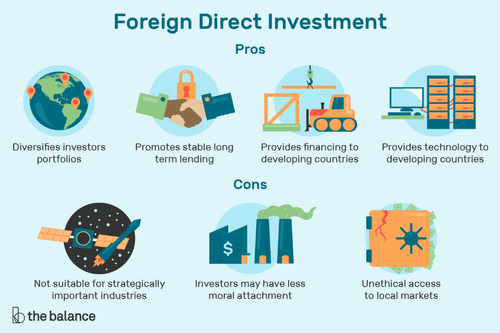The economic weapon is among the most powerful assets that any government possesses in protecting national security. Greater scrutiny is accorded to economic transactions involving strategic assets: the US government has enacted laws to protect a wide range of “Strategic Assets”, those include American farmland, airlines, telecommunications, and defence-related corporations from what it considers adverse foreign investment. A legal infrastructure arms the US government with the tools necessary to protect their national security interests and to secure their nation’s strategic assets.
The US Exon-Florio Amendment (Exon-Florio) lies at the center of the U.S. government’s foreign economic investment controls. As an amendment to the Defence Production Act of 1950, Exon-Florio was enacted in1988 as part of the Omnibus Trade and Competitiveness Act “as a national security filter on FDI”. The 1993 Defence Authorization Act known as Byrd Amendment by requiring evaluation of the potential effects of a transaction, expanded the scope of national security factors for consideration and laid the foundation for the consideration of third-party transactions. Immediate report to Congress whether or not action is taken following an investigation, as well as a Quadrennial Report detailing any credible evidence of either industrial espionage or a coordinated attempt by either foreign countries or companies to usurp American control over leading sectors of technology.
Airline industry is a symbolic national asset, under Aviation Act of 1958, only U.S. citizens may offer domestic air service within the United States. Historically, American farmland has also been the subject of legislative protectionism because of the perceived symbolic and strategic value of land. In fact, by 1979, “Foreign ownership of farmland had been restricted in 20 states, and the U.S. Congress [had] approved legislation that would require foreign investors to report all purchases or long-term leases of American farmland to the Secretary of Agriculture.” rather a symbolic concern. Legislation prohibiting foreign ownership has existed since 1934, The 1996 Act’s categorical prohibition against foreign ownership and strict regulation of corporate involvement reflects “the intent of Congress to inject a national security consideration into the international telecommunication business transaction.” The 1996 Act flatly prohibits foreign nationals and foreign companies from participating in certain categories of the American tele-communications industry.
In 1985, Murdoch’s purchase of Metromedia’s television stations in the United States required him to become a naturalized American citizen because of FCC rules. Two foreign corporations-one Chinese and one Singaporean were not given the approval to purchase a bankrupt American corporation by a court. In describing one of the purchasers, the court said that “Hutchinson is a Hong Kong entity, and Hong Kong is now under the political control of China, [which] plainly ma[kes] securing approval from CFIUS, which focuses in significant part on national security concerns, difficult or impossible. The Defence Production Act of 1950 was used by President George H.W. Bush in 1990 to prevent a Chinese company from owning an interest in an American aerospace company. The Thomson-LTV deal collapsed because the risks of having a French-owned company supply the U.S. military were too great, particularly with respect to the potential for third party transactions and exportations.
The European Union and Japan require majority domestic ownership in the airline and telecommunication industries, respectively. Contrast that with Pakistan where 100% of the mobile telephone companies are in foreign hands. The bulk of global FDI restrictions are actually in non-manufacturing sectors, with “electricity, transport and telecommunications [being] the most constrained industries, followed by finance. Iceland has a complete ban of foreign ownership in its fishing and energy industries, while Mexico has similar restrictions in its oil sector. Australia, for example, “maintains restrictions on investment in sensitive sectors, including urban land, banking, aviation, airports, shipping, broadcasting, newspapers and telecommunications. In telecommunications, in particular, Australia has enacted specific legislation limiting the total foreign ownership of its dominant carrier.
Despite the fact that there has been a substantial liberalization of FDI in most developed countries since 1980 in late June 2005, CNOOC’s offer to purchase Unocal, an American oil company, was prevented by the Congress resolution that not only would the CNOOC-Unocal merger transfer significant natural resources away from the United States and towards China. In Armed Services Committee hearings Chairman Duncan Hunter expressed his belief that “the simple fact is that energy is a strategic commodity” affecting national security and that the Unocal-CNOOC deal would help China to increase “its leverage over U.S. interests” in regions affected by the deal. On August 2, 2005, CNOOC indicated that it would withdraw its offer for Unocal. On the other hand, Congress opened the door for certain dual-use technologies to be exported to China.

The EU has one of the world’s most open investment regimes, as acknowledged by the OECD in its investment restrictiveness index. The EU is the main destination for foreign direct investment in the world: foreign direct investment stocks held by third country investors in the EU amounted to €6,295 billion at the end of 2017, providing Europeans with 16 million direct jobs. The new EU framework for the screening of foreign direct investments has officially entered into force on 10 April 2019. The new framework is based on proposal tabled by the EU in September 2017 and will be instrumental in safeguarding Europe’s security and public order in relation to foreign direct investments into the Union. The legislation focuses on strategic assets that are critical to European security and public order, including foreign acquisitions of critical technologies, infrastructure, or sensitive information, these include the energy sector and telecommunications. The framework is not binding but only a recommendation.
In determining whether an FDI is likely to affect security or public order, EU Member States and the EU Commission consider its potential effects on, inter alia: (a) critical infrastructure, whether physical or virtual, including energy, transport, water, health, communications, media, data processing or storage, aerospace, defence, electoral or financial infrastructure, and sensitive facilities, as well as land and real estate crucial for the use of such infrastructure; (b) critical technologies and dual use items as defined in point 1 of Article 2 of Council Regulation (EC) No428/20091, including artificial intelligence, robotics, semiconductors, cybersecurity, aerospace, defence, energy storage, quantum and nuclear technologies as well as nanotechnologies and biotechnologies; (c) supply of critical inputs, including energy or raw materials, as well as food security; (d) access to sensitive information, including personal data, or the ability to control such information; or (e) the freedom and pluralism of the media.
Look at the broad use of the term “strategic asset” to define what is crucial to national security. Can we afford any other nation, however friendly, to have total control of a vital national security entity control, of which can influence the country’s policies, both external and internal? Is so, why powerful nations like the US, EU countries and China have such laws that we don’t?
(this is the first part in a two part series on this most important and national security issues by the defence and security analyst).




